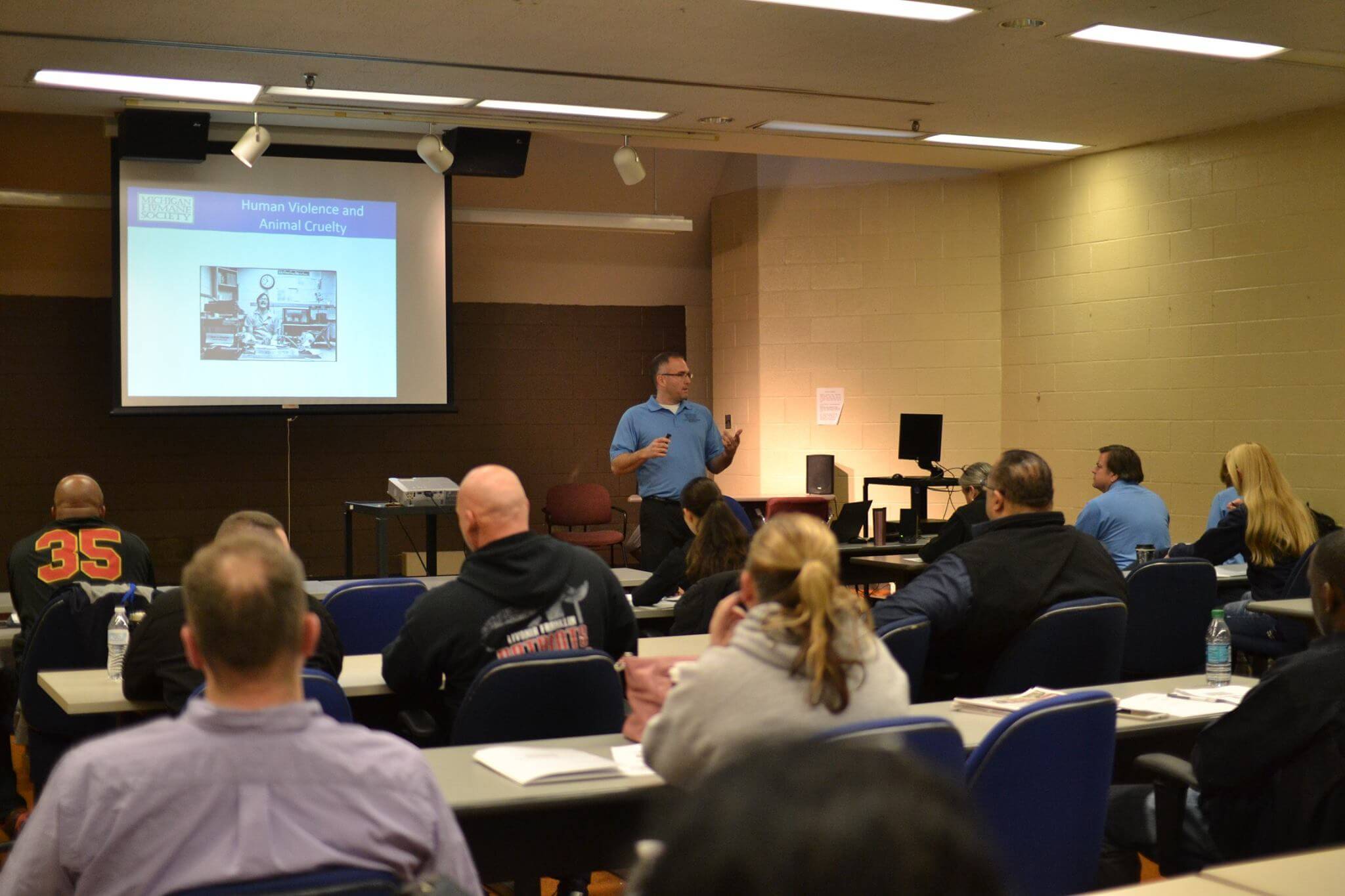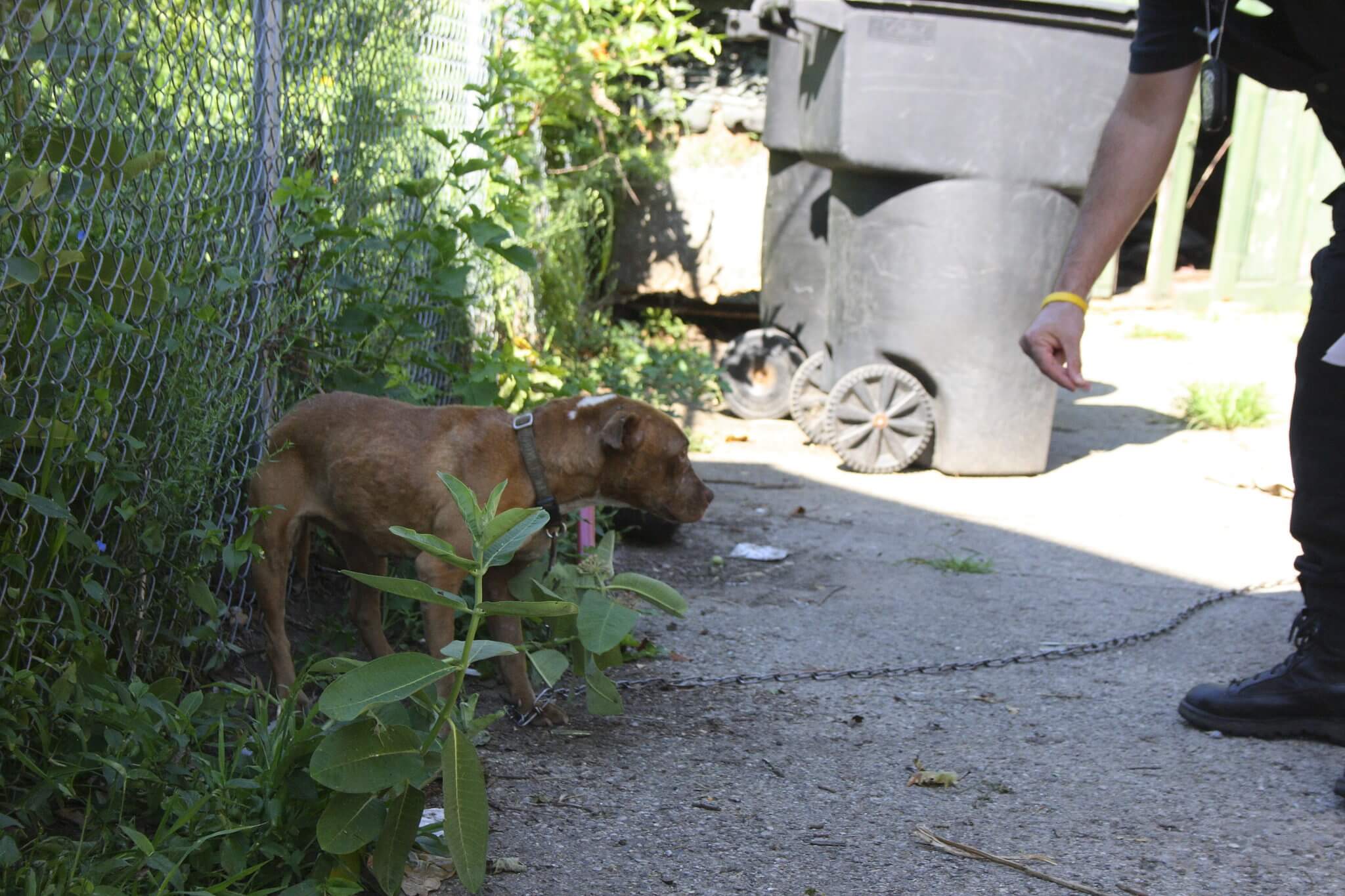Earlier this year, we saw Grand Traverse County remove their two animal control officers from the budget, effectively eliminating animal control from the county. Now, Montcalm County finds itself considering the same course of action.
Elected officials and government leadership have difficult jobs; I know firsthand, having spent a majority of my career within municipal animal care and control departments. These departments are often asked to do what seems like the impossible by balancing services with limited funding. Animal care and control departments and their associated personnel are often seen as low-hanging fruit when it comes to budget cuts. They are, therefore, often the first to get hit when challenging financial times present themselves.
Eliminating or dramatically cutting municipal animal care and control departments is extremely short-sighted and potentially permanently damaging to the health and well-being of the community.
Animal care and control plays a vital role in both public safety and the overall quality of life for each and every community in Michigan.
In the absence of trained, compassionate personnel tasked with responding to animal-related issues in a community, the responsibility will most likely fall to local law enforcement and/or will be taken on independently by citizen volunteers. Neither provides the appropriate level of protection to either the citizens or animals of our communities. Local law enforcement is often not trained in handling or dealing with animals in the field, nor trained to recognize animal cruelty and its subsequent correlation to human violence – a focus point of the Michigan Humane Society’s Law Enforcement Training Program.

While highly compassionate, trained and committed volunteers are the lifeblood of organizations such as MHS, they should not be expected or positioned to take on a municipal, tax-payer funded responsibility. This most often leads to untrained individuals, with little or no oversight, acting in a public safety capacity. Even highly trained law enforcement officers often lack the specific training and expertise needed to handle animal-related issues in an effective, efficient and humane manner. This is in no way to be seen as a slight on law enforcement or volunteers – they are doing what they need to do to be a resource to their community, but they are simply not properly equipped to do so.
Furthermore, when the number of animals who need care increases due to the lack of an animal control officers and resources, these animals often end up at local animal welfare organizations – nonprofits whose resources are already severely strained. A community is most effective in caring for their animals when private animal welfare organizations, volunteers, law enforcement personnel, and the local animal control officers are each able to provide their specific services to the community.
Additionally, animal control officers are specifically trained to handle animals in a public safety capacity, and in cases of cruelty. They are uniquely trained in handling animal-related disease issues. For example, animal control officers know the rabies protocols and quarantine procedures designed to keep you safe. Keep in mind that, while uncommon in modern times, rabies still exists and is 100% fatal if not appropriately addressed. Furthermore, animal control officers are trained to address the suffering in neglect and cruelty cases – suffering that would continue to exist if the responsibility fell to those without the training or the authority to address it. The spread of infectious disease and animal victims of violence are, unfortunately, common concerns throughout Michigan, and communities must invest in the resources to appropriately address these situations.

Cutting the programs that protect us from animal-related injury and disease and provide appropriate protection to the community’s animals is a shortsighted solution to the financial issues facing many communities in Michigan. Is there an easy solution? No, there is not. That said, the ramifications of eliminating animal control functions from our communities often reach much farther than one might expect. If we are to provide our communities with appropriate protection, needed public safety, and protection for the animals our citizens clearly care deeply about, we must invest in our animal care and control departments and ensure that they have the tools necessary to be successful.
Matthew Pepper
President and CEO
Michigan Humane Society


